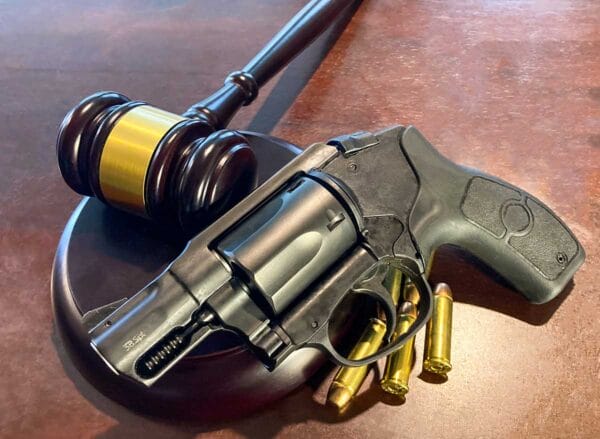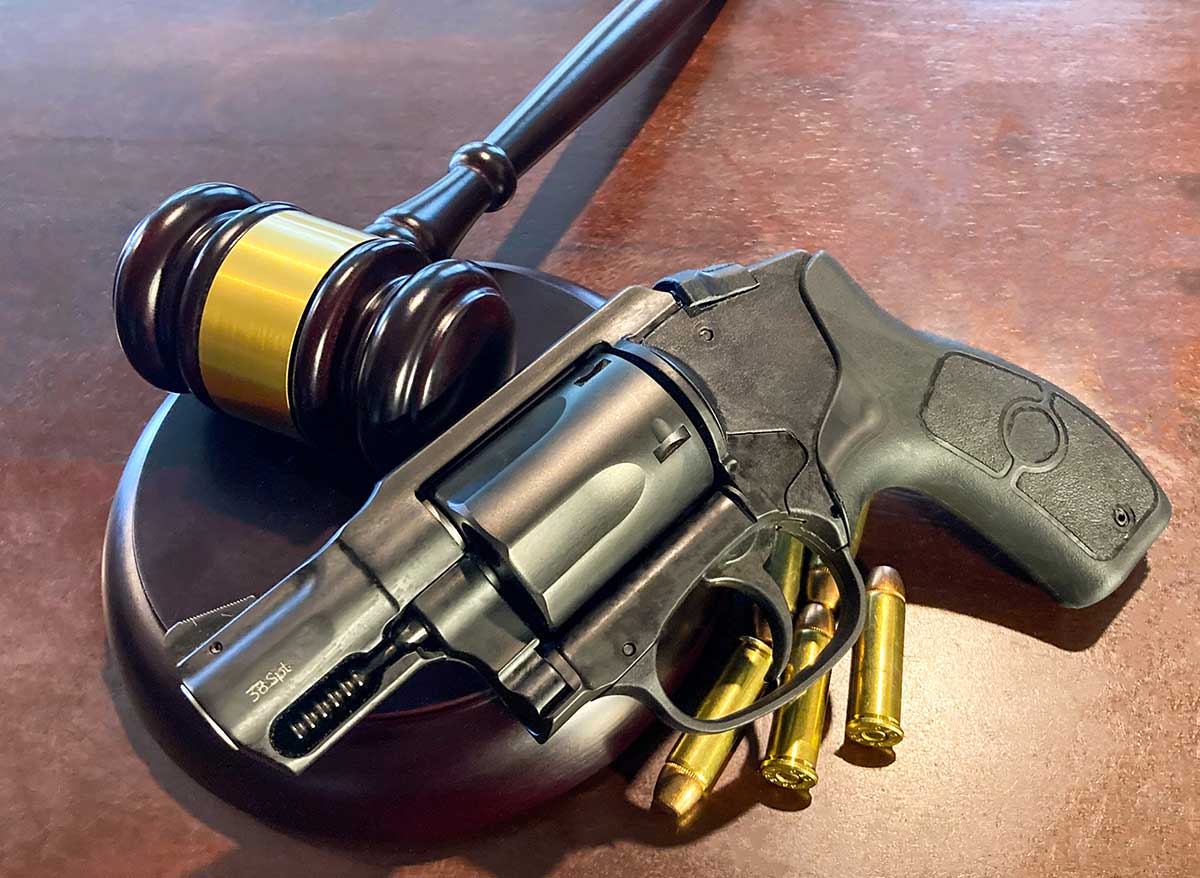Opinion

Two years ago, New York Times columnist David French complains, the Supreme Court “created a jurisprudential mess that scrambled American gun laws” by saying they must be “consistent with this Nation’s historical tradition of firearm regulation.” Last week, French suggests, the court drew back from the precipice when it upheld a federal law that disarms people who are subject to domestic violence restraining orders.
That take is somewhat misleading since all eight justices who voted to uphold that law plausibly claimed to be following the approach the Court prescribed in the 2022 case New York State Rifle & Pistol Association v. Bruen.
Yet French is by no means the only Second Amendment supporter who thinks that test is impractical.
Bruen explicitly rejected “interest-balancing” tests that weigh a gun law’s burdens against its purported benefits — an approach that gave judges a license to approve any regulations they deemed sensible. But critics of Bruen argue that it replaced one kind of unbridled discretion with another, inviting judges to express their personal biases when they decide whether a challenged law is “relevantly similar” to a “historical analogue” identified by the government.
Writing for the majority last week in United States v. Rahimi, Chief Justice John Roberts concluded that “our tradition of firearm regulation allows the Government to disarm individuals who present a credible threat to the physical safety of others” — a description that applies to at least some people covered by the federal ban, including the defendant in this case. Roberts saw a precedent for that policy in “surety” laws, which required allegedly threatening individuals to post bonds that would be forfeited if they “broke the peace.”
Justice Clarence Thomas, who wrote the majority opinion in Bruen and the sole dissent in Rahimi, conceded that surety laws “shared a common justification” with the statute that disarms people based on restraining orders. But he argued that they were not “relevantly similar” because “they imposed a far less onerous burden.”
Despite this disagreement, Roberts et al. reaffirmed the Bruen test, noting that it does not demand a “dead ringer” or “historical twin,” a requirement that would “suggest a law trapped in amber.” And the fact that the justices disagreed about how to apply a constitutional standard, which happens all the time, does not by itself mean this one is unworkable.
In a concurring opinion, however, Justice Ketanji Brown Jackson noted that “lower courts are struggling” to apply Bruen consistently, “diverging in both approach and outcome.” A new study by three law professors — Rebecca Brown, Lee Epstein, and Mitu Gulati — reinforces that impression.
After Bruen, they report, the number of Second Amendment challenges heard by federal courts rose, and so did the share that were successful. But they found that “judicial discretion, as measured by partisanship, has not been constrained.”
To the contrary, Brown et al. say, the correspondence between judges’ conclusions and the party of the president who appointed them has increased. They conclude that Bruen “places considerable unguided discretion in judges, inviting partisan bias.”
The Cato Institute’s Clark Neily, who submitted a brief in Rahimi criticizing the challenged law on due process grounds, argues that the Supreme Court, despite its rejection of “interest-balancing” analysis, is taking essentially the same approach under the guise of “text/history/tradition.” He predicts that “pragmatism will play an enormous, if unacknowledged, role in driving case outcomes.”
It nevertheless seems clear that Bruen has constrained judicial discretion in at least some cases. Confronted by a wave of state laws that banned guns from long lists of “sensitive places,” for example, federal judges predictably disagreed about the validity of the government’s historical analogies, but there was some encouraging consistency between Republican and Democratic appointees.
Despite its drawbacks, the Bruen test has been undeniably effective in defeating constitutionally dubious firearm regulations. Whether that counts in its favor depends on whether you view the Second Amendment as an inconvenient relic or a vital guarantee of a fundamental right.
About Jacob Sullum
Jacob Sullum is a senior editor at Reason magazine. Follow him on Twitter: @JacobSullum. During two decades in journalism, he has relentlessly skewered authoritarians of the left and the right, making the case for shrinking the realm of politics and expanding the realm of individual choice. Jacobs’ work appears here at AmmoLand News through a license with Creators Syndicate.







From the article: Writing for the majority last week in United States v. Rahimi, Chief Justice John Roberts concluded that “our tradition of firearm regulation allows the Government to disarm individuals who present a credible threat to the physical safety of others” The left thinks that anyone that needs a gun is insecure and has mental problems. While we have the surgeon general proclaiming that “Gun Violence” is a health issue, the statement above gives the left, just what they need in support. Remember, credible threat is determined by whoever is in charge of that in that particular jurisdiction and right now… Read more »
“…They conclude that Bruen “places considerable unguided discretion in judges, inviting partisan bias.”
Hmm, “partisan bias”. In this instance, those who agree with and uphold the historical meanings of the Constitution and those who don’t (the propagandists who insist we are a democracy).
you should not be able to protect yourself from the goobers only the uber rich have rights…….the right to be shot for treason is their first
Hemp wiII soIve this.
“It nevertheless seems clear that Bruen has constrained judicial discretion in at least some cases.”
That’s very likely. In many cases charges are not even brought unless the prosecutor sees a good chance of winning.
In Florida, since the advent of our “stand your ground” and “castle doctrine” laws, some DA’s have declined to bring charges citing one or both even if the possible defendant hasn’t mentioned either as a possible defense.
Rahimi was a lousy test case, even though it is not supposed to enter into consideration the guy is a scumbag and a rather dangerous character.
I didn’t go to lawyer school but IIRC there was NO federal level “gun control” law until the progs pushed the ’34 NFA through. Yes there were individual cities (Dodge City) and even some states (noo yawk ‘Sullivan Act’) that had them.
In fact most states (developed from the original colonies) REQUIRED most Citizens to keep arms available for emergencies. Can anyone prove differently?
PLEASE everyone, just FORGET about all this brainwashed in crap of filing lawsuits and arguments and making appeals, waiting for “justice” to prevail, because the whole, entire, complete legal system is a scam and a con job! If you look behind a restaurant, and see a mountain of empty dog food cans back there, with flies and cockroaches and rats swarming all over the place, do you still want to order a meal from them? I sure wouldn’t! The legal system is no different! But everyone is too clueless to look for the hidden data and then act accordingly! Everyone… Read more »